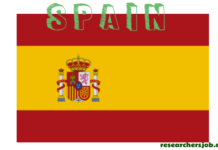2025 PhD Scholarship in Antenna: The University of Strathclyde is inviting applications for a fully funded PhD studentship focusing on high power microwave antenna research. This unique opportunity allows candidates to explore the suppression of undesired sidebands in slot mode antennas with practical applications in energy transfer, supported by Teledyne e2v.
2025 PhD Scholarship in High Power Microwave Antenna
Designation
PhD Scholar
Research Area
High Power Microwave Antennas, focusing on the suppression of undesired sidebands in slot mode antennas.
Location
University of Strathclyde, Glasgow, United Kingdom
Eligibility/Qualification
- Applicants must hold a minimum of an upper Second Class UK Honours degree or an equivalent international qualification in a relevant science or engineering discipline.
- Candidates must be UK Nationals and willing to apply for Baseline Personnel Security Standard (BPSS) clearance.
Job Description
The PhD research will involve:
- Conducting numerical simulations and benchmarking against experimental measurements.
- Investigating various options to minimize sidelobes in high power antennas while ensuring high gain.
- Initially focusing on slot type antennas and eventually extending to alternative designs.
- Utilizing advanced simulation techniques to predict antenna patterns and conducting experiments for validation.
How to Apply
Interested candidates are strongly encouraged to contact the supervisors prior to applying. Applications should be submitted through the University of Strathclyde’s official website or designated application portal. For inquiries, please reach out to the following supervisors:
- Professor Kevin Ronald: K.Ronald@strath.ac.uk
- Professor Colin Whyte
Last Date to Apply
Thursday, 31 July 2025
This opportunity promises valuable experience in a cutting-edge field and contributes to significant advancements in microwave antenna research.







